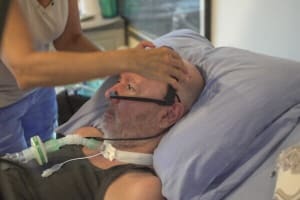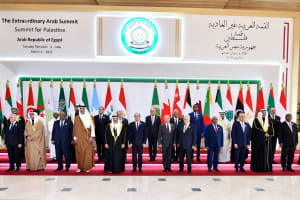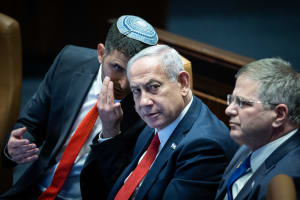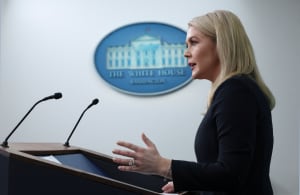Supporting working women through Israel’s war
FemForward MENA brings together women across regions to build cross-cultural business connections and more
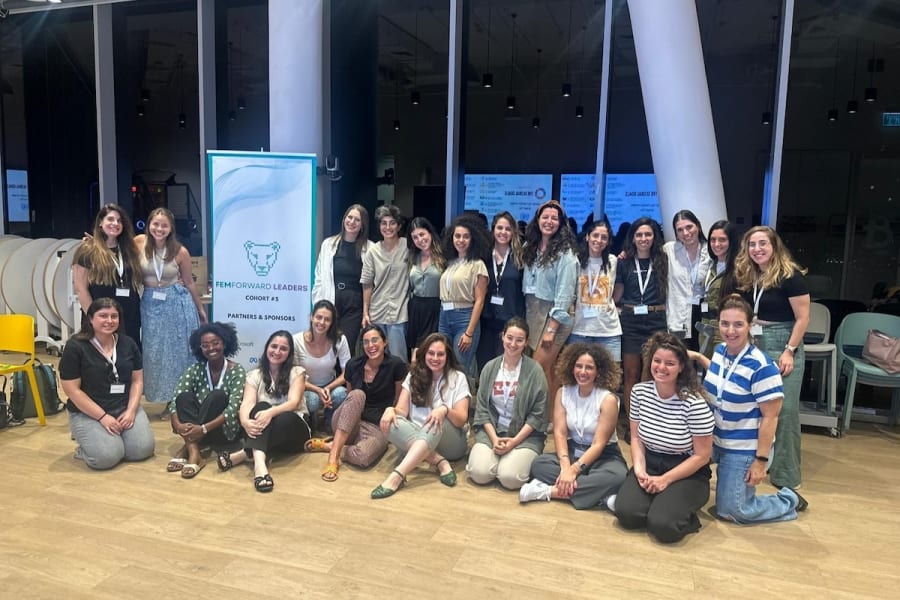
Women’s careers are disproportionately affected in the event of a crisis, according to FemForward, a career-advancement program for women in Israel. If disruption happens early in a woman’s career it may have a permanent impact.
“If women don’t advance in the first five to seven years of their careers, then their chances of doing so drop,” said Ruth Moatti, head of FemForward.
Since Oct. 7, for example, hundreds of thousands of families were displaced from border communities, and thousands of husbands and fathers were suddenly drafted, leaving working women in very challenging situations.
So pronounced is the impact on the career ladder for women whose lives are undergoing upheaval that it has a name: the Broken Rung phenomenon.
FemForward was developed in order to combat this "broken rung" phenomenon. It is an Israeli initiative supported by Microsoft, Mobileye, Lightricks and Monday.
Women who have taken part in the program have experienced significant benefits. Moatti reported the tangible results: “Our statistics show that within six months of completing the program, at least 50 percent of participants report a substantial pay raise or advancement within their organization.”
When there is a crisis, gender gaps grow and women are pushed to the sidelines, Moatti explained. The ongoing war is no exception, so the program is currently focusing on women impacted by the events following the Oct. 7 massacre.
“Whether they were away on military reserve duty, or their spouses were, or whether they experienced loss or found themselves at the heart of terror and trauma, there’s no doubt that women have had a lot on their plates – keeping their families together, holding on and maintaining their careers. We didn’t want their career advancement to fall through because of all of this.”
By mending these broken career ladders, FemForward shares its conviction that the positive effect will be felt throughout the whole region of the Middle East and North Africa (MENA).
FemForward MENA is a branch of FemForward Leaders and focuses on women from the Abraham Accords countries: Bahrain, Israel, Morocco, and the United Arab Emirates. This initiative is a collaboration with the U.S. Embassy in Jerusalem and the UAE-Israel Business Council. The goal is to unite women from the MENA and Gulf regions to establish cross-cultural business connections, foster lasting friendships, and promote future female leadership.
“We believe that women are the driving force in building bridges and a resilient shared society, which is critical to the future of the MENA region. Female leaders demonstrate the highest levels of transformational leadership styles such as taking initiative, driving for results, building relationships, collaboration, teamwork and connecting their groups to the outside world (Harvard Business Review); all crucial components in the development of shared society and peacebuilding. However, there exists a notable underrepresentation of female leadership in the MENA region, mirroring a broader global trend. Only 13% of all elected leaders of multilateral organizations have been women since 1945 (GWL Voices).”
This conviction was echoed by UN Women Executive Director Sima Bahous in her statement about the goals of UN Women: “Our work is guided by the belief that when women lead, the world is better for all people and the planet…Women’s equal participation in governance and leadership is key to improving lives for all.”
However, whether in board rooms or committee meetings, even if women are present, they are usually under-represented.
“In my personal experience, managerial meetings will always be comprised mostly of men, and it’s difficult to be one of the only women in the room,” says accountant Adva Shavit, whose career was disrupted by evacuation from her kibbutz near the northern border. “The program provides me with a diversion. Suddenly, I’m doing things that are not only related to the war.”
FemForward works with cohorts of handpicked candidates to help them gain valuable skills and knowledge that will benefit them in the workplace. Training is given in matters such as salary negotiation, motivation, communication in the workplace, and how to improve CVs and LinkedIn profiles. The candidates are given training and support through 16 group sessions, along with four personal mentoring sessions focussed on their individual careers.
Moatti reflects on the positive effect the program has had on this cohort.
“It was very emotional for me to see that at the hardest moments, FemForward helped them keep their heads above the water and be themselves, to see that there’s a positive future and make them feel that they haven’t lost everything.”

Jo Elizabeth has a great interest in politics and cultural developments, studying Social Policy for her first degree and gaining a Masters in Jewish Philosophy from Haifa University, but she loves to write about the Bible and its primary subject, the God of Israel. As a writer, Jo spends her time between the UK and Jerusalem, Israel.
You might also like to read this:


